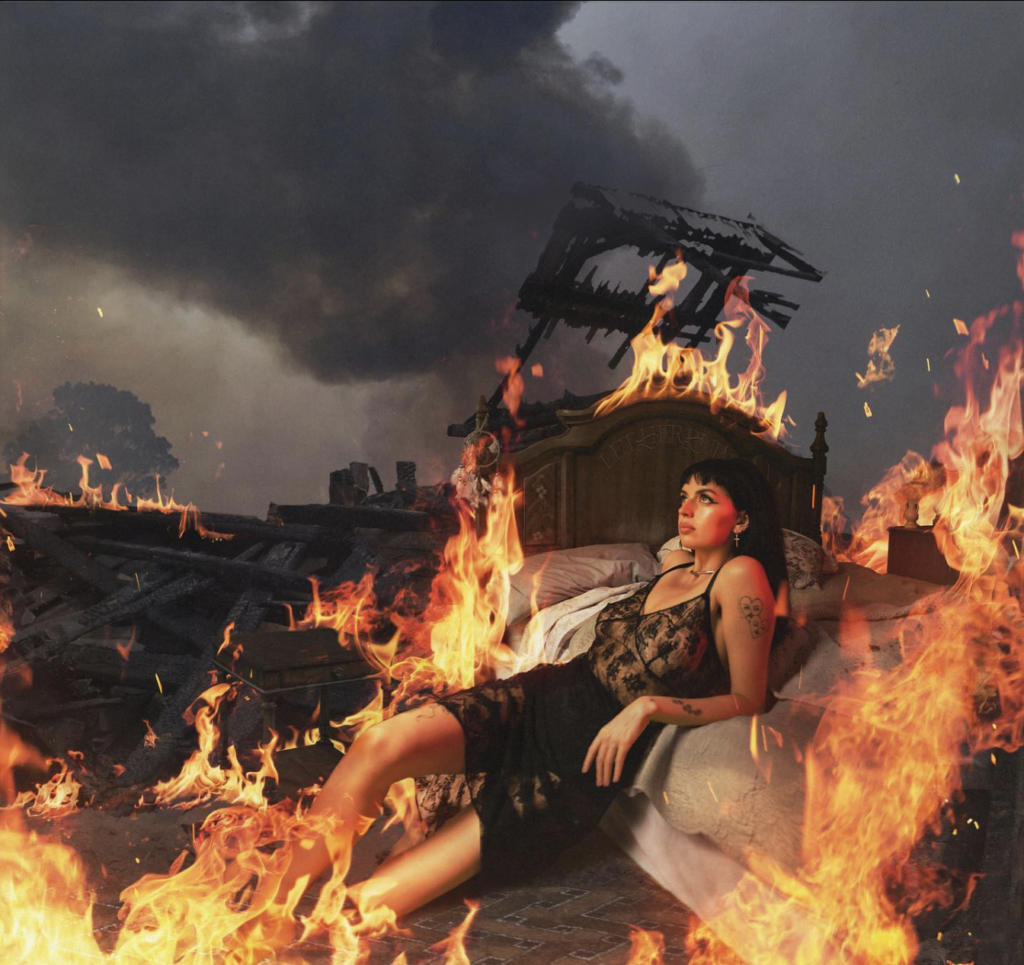On Friday, oh wait, Thursday, Feb. 9, Rebecca Black released her first full-length album “Let Her Burn” over a decade after her initial YouTube fame back in 2011 with her viral song and accompanying music video, “Friday.”
While the album was released under the genre of R&B/Pop there are many elements of angsty pop punk encased in electro-metal. The album has been highly anticipated since its first single “Crumbs” was released this in Feb. 2022.
This album served as Black reclaiming of her identity after receiving an outpouring of negative reactions to the viral “Friday” video from the media. As a whole, the album is Black’s attempt to move on from the public’s perception of her as the thirteen-year-old singing in the back of a car.
The darker tones in many of the songs are how she presents the adult version of herself who is unafraid of what the public or the music industry thinks.
“It’s definitely about taking everything, all of the negativity and everything that I’ve been through, and burning it all to the ground, but also letting the version and person who I am now burn brightly,” Black said in an interview with media company Remezcla. “Both of those things simultaneously were important themes of the album and themes of where I’m at now in my life.”
In the opening track, titled “Erase You,” the production steals the show with its slow start followed by an eruption of beats and neon synths. Black keeps her previous hyper-pop tendencies while softening them to keep them interesting and accessible. The lyrics speak to using your ex as an excuse for why the relationship failed, rather than owning up to your shortcomings. These powerful verses are encompassed by the beat drops leading into the chorus, creating a fitting introduction to the rest of the album.
The second track, titled “Destroy Me,” takes a more personal look at the relationship Black has had with herself. It focuses on the insecurities of permitting other people to come in and shape how you view yourself. This duality of self is shown in the chorus when she sings, “Every time you see me, do you hear violins? / Cut a little deeper, there’s no reaching the end/ Watch me while I crash and burn again and again/ Go ahead, destroy me.”
As the album continues some highlights include “What Am I Gonna Do With You,” which uses a muted vocal style that is traditionally associated with Billie Eilish, followed by “Cry Hard Enough,” which spotlights Black’s soaring vocals that transform into a hip-hop-centered track.
Closing out the album, “Performer” gives space again for the identity issues highlighted in the previous tracks. Black seems to call out the double-edged sword of her new rebranding when she sings the lyrics, “Multiple versions / Of the same person / All of them hurting / Don’t think the performance is working.”
If you find yourself still asking if Rebecca Black deserves to be taken seriously, know that she has grown tremendously from her days as a 13 year old girl riding in the back of a car with her friends and singing about breakfast cereal.
“Let Her Burn” is a culmination of the progression in her style over the past decade rather than an out-of- nowhere re-brand. With a fresh mindset on who Rebecca Black is as an artist, the album is worth the 30-minute listen.
